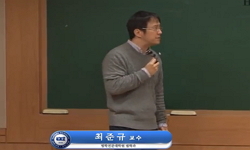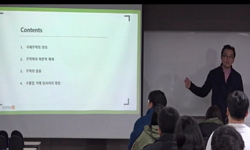이 연구에서는 계약법을 자율 패러다임과 후견 패러다임에 기초하여 조망하였다. 자율 패러다임은 계약법의 기본 패러다임이다. 자기 결정에 따른 사적 질서의 형성(private ordering)은 계약법...
http://chineseinput.net/에서 pinyin(병음)방식으로 중국어를 변환할 수 있습니다.
변환된 중국어를 복사하여 사용하시면 됩니다.
- 中文 을 입력하시려면 zhongwen을 입력하시고 space를누르시면됩니다.
- 北京 을 입력하시려면 beijing을 입력하시고 space를 누르시면 됩니다.
계약법의 사상적 기초와 그 시사점
한글로보기https://www.riss.kr/link?id=G3761348
- 저자
-
발행기관
-
-
발행연도
2010년
-
작성언어
Korean
-
주제어
계약 ; Good Faith Principle ; Freedom of Contract ; Information ; Contract Law ; Contract ; Comparative Contract Law ; Risk ; Law and Economics ; Law and Philosophy ; Relation Theory ; Will Theory ; Interpretation of Contract ; 계약법 ; 사상적 기초 ; 자율 ; 후견 ; 사적 자치 ; 계약자유 ; 의사이론 ; 관계이론
-
자료형태
한국연구재단(NRF)
-
0
상세조회 -
0
다운로드
부가정보
국문 초록 (Abstract)
따라서 중요한 문제는 언제 자율이 끝나고 후견이 시작되는가 하는 점이다. 이 보고서에서는 이를 일원적으로 설명할 수 있는 원리는 존재하지 않지만, 계약의 특성에 따른 기능적이고 유연한 접근방법은 가능하다는 점을 제시하였다. 이에 따라 계약을 크게 세 가지 유형으로 나누어 각각의 유형에 있어서 자율과 후견의 역학관계에 대하여 설명하였다. 즉 계약은 ① 전문적 당사자와 비전문적 당사자 사이의 계약(제1유형), ② 전문적 당사자 사이의 계약(제2유형), ③ 비전문적 당사자 사이의 계약(제3유형)으로 나누어 볼 수 있다. 양(量)의 관점에서만 보자면 제1유형에 속하는 계약의 숫자가 압도적으로 많다. 이러한 계약은 대체로 약관형태로 체결되고, 후견 패러다
이 연구에서는 계약법을 자율 패러다임과 후견 패러다임에 기초하여 조망하였다. 자율 패러다임은 계약법의 기본 패러다임이다. 자기 결정에 따른 사적 질서의 형성(private ordering)은 계약법의 근간을 이루는 원칙이기 때문이다. 그러나 고전적 계약법 이론을 강력하게 지배하던 자율 패러다임은 공동체와 개인의 현실적 역학관계와 이에 관한 사상적 흐름이 변하면서 여러 가지 한계점을 노정하게 되었다. 특히 현대 사회의 정보비대칭은 자율 패러다임을 위협하게 되었다. 이에 따라 후견 패러다임이 서서히 각광받기 시작하였다. 계약관계에 있어서 계약당사자의 의사, 계약당사자의 지위, 계약의 내용에 대한 후견적 관여가 이루어져야 한다는 사고방식은 사회현실에 비추어 점점 설득력을 얻게 되었다. 따라서 두 패러다임이 공존한다는 점에 대해서는 이론의 여지가 없다. 이를 회색적이라고 비판하는 것은 타당하지 않다. 본래 법은 중용과 공존과 균형을 추구한다. 법은 본질적으로 다양한 가치와 현상을 다루기 때문이다. 따라서 하나의 가치에 지나치게 경도되어 모든 다양한 현상을 획일적으로 설명하는 것은 법의 이러한 속성에 어긋나는 것이다. 그러한 견지에서 필자는 불법행위법에 관해서도 예방과 회복의 두 가치가 공존하되, ‘무엇이 불법행위인가’를 결정함에 있어서는 예방의 패러다임이, ‘불법행위에 대한 구제수단의 내용이 무엇인가’를 결정함에 있어서는 회복의 패러다임이 각각 주도적인 역할을 수행한다고 주장한 바 있다. 이와 같은 맥락에서 자율 패러다임과 후견 패러다임은 계약법 내에서 상호작용하면서 계약법의 지형을 형성하고 있다. 특히 최근에는 후견 패러다임이 적지 않은 비중을 차지하고 있다. 이를 통해 이념적으로는 당사자에게 쏠려 있어야 할 계약의 무게중심이 현실 속에서는 국회로, 규제기관으로, 법원으로 상당 부분 이동해 있다. 특별법이 늘어나면서 입법적 후견이 커지고, 일반조항의 활용도와 계약해석분쟁의 빈도가 높아지면서 사법적 후견이 커지며, 계약의 대부분을 차지하는 약관에 대한 행정규제가 늘어나면서 행정적 후견이 커진다. 정보제공의무나 설명의무가 강조되면서 계약 상대방에 의한 사적 후견 또는 간접적 후견이 커진다. 바야흐로 계약법에 있어서 후견 패러다임은 자율 패러다임에 준하는 위치에까지 이르게 되었다. 이러한 현실은 계약법의 기본이념과 상당한 거리가 있는 것으로서 이를 받아들이는 데에 상당한 거부감이 있을 수 있다. 그러나 냉철하게 이를 바라보면서 후견 패러다임을 필요한 범위 내에서 제어하는 것이 더욱 올바른 태도가 아닌가 생각된다.
따라서 중요한 문제는 언제 자율이 끝나고 후견이 시작되는가 하는 점이다. 이 보고서에서는 이를 일원적으로 설명할 수 있는 원리는 존재하지 않지만, 계약의 특성에 따른 기능적이고 유연한 접근방법은 가능하다는 점을 제시하였다. 이에 따라 계약을 크게 세 가지 유형으로 나누어 각각의 유형에 있어서 자율과 후견의 역학관계에 대하여 설명하였다. 즉 계약은 ① 전문적 당사자와 비전문적 당사자 사이의 계약(제1유형), ② 전문적 당사자 사이의 계약(제2유형), ③ 비전문적 당사자 사이의 계약(제3유형)으로 나누어 볼 수 있다. 양(量)의 관점에서만 보자면 제1유형에 속하는 계약의 숫자가 압도적으로 많다. 이러한 계약은 대체로 약관형태로 체결되고, 후견 패러다
다국어 초록 (Multilingual Abstract)
The important thing is when this paternalistic intervention is justified. There is no single and clear-cut principle by which a direct answer can be given. However, there is some flexible and functional way of explaining this. That having said, I have categorized contracts into three types. The first type is the contract made between the party with expertise and the party with no such expertise. This type accounts for the most of the contracts. With this asymmestry, it is more apt to invite paternalism. The second type is the contract made between parties both with expertise. This may be small in number, but the significance and impact of each contract is huge in the economy. With individual negotiations taking place, this type of contract is closer to autonomy paradigm, and should be treated as such. The third and final type of contract is the contract made between partis both with no expertise. This type is in the middle in terms of its subjectivity to paternalism. However, it is worthwhile to note that this type of contract is often signifcantly influenced by the convention or trade usage, tokens of paternalistic paradigm. In a nutshell, it should be noted that "the meeting of the minds", a key concept of the contract, is in fact very diverse according to the characteristics of contracts and thus distinct from each other in its density. The detailed interrelationship between two paradigms will be determined on this basis.
I have taken a comprehensive look on the contract law based on two different paradigms - namely a autonomy paradigm and a paternalistic paradigm. The autonomoy paradigm sets a cornerstone for the contract law, since the private ordering is the essenti...
I have taken a comprehensive look on the contract law based on two different paradigms - namely a autonomy paradigm and a paternalistic paradigm. The autonomoy paradigm sets a cornerstone for the contract law, since the private ordering is the essential feature of the law. However, this paradigm is severely challenged in the wake of asymmestry of information as well as a gradual weight-shift from the individual to community. Meanwhile, the paternalistic paradigm emerged in response to these crises of autonomy. Therefore, it would be safe to say that both paradigms are co-existing and interacting with each other in the realm of contract law. This is totally understandable in that the law is all about balancing multiple values. Thus, it would be inappropriate to describe the certain field of law solely based on a single paradigm. Noteworthy is the trend toward the rise of paternalism in the contract law. The increase of regulatory laws, the activeness of judiciary to intervene into contractual relationship, as well as the dominance of standard form contract which comprises a major portion of contracts in real lives coupled with ever-more rising regulation on this type of contract makes paternalism more vital in the contract law. The emphasis on the duty to disclose information can also be understood in the same light. For this reason, it would be wise to candidly admit and accept this trend and see how we can curb this trend in a reasonable manner.
The important thing is when this paternalistic intervention is justified. There is no single and clear-cut principle by which a direct answer can be given. However, there is some flexible and functional way of explaining this. That having said, I have categorized contracts into three types. The first type is the contract made between the party with expertise and the party with no such expertise. This type accounts for the most of the contracts. With this asymmestry, it is more apt to invite paternalism. The second type is the contract made between parties both with expertise. This may be small in number, but the significance and impact of each contract is huge in the economy. With individual negotiations taking place, this type of contract is closer to autonomy paradigm, and should be treated as such. The third and final type of contract is the contract made between partis both with no expertise. This type is in the middle in terms of its subjectivity to paternalism. However, it is worthwhile to note that this type of contract is often signifcantly influenced by the convention or trade usage, tokens of paternalistic paradigm. In a nutshell, it should be noted that "the meeting of the minds", a key concept of the contract, is in fact very diverse according to the characteristics of contracts and thus distinct from each other in its density. The detailed interrelationship between two paradigms will be determined on this basis.











